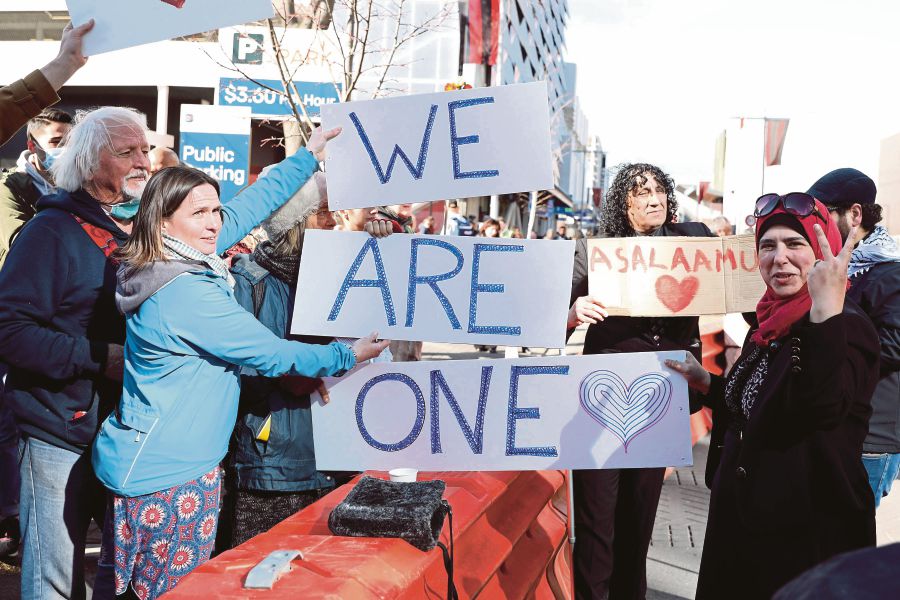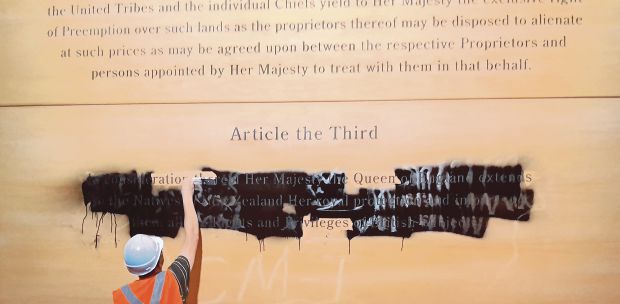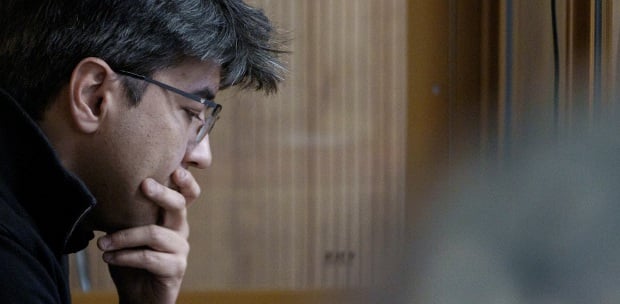BRENTON Harrison Tarrant, a 29-year-old Australian far-right "white supremacist" from Grafton, New South Wales, had a deadly mission, which is pure evil.
He told police (after his arrest) that he wanted to kill as many Muslims as possible. He had streamed the slaughter of the Friday worshippers on social media, the worst act of violence in New Zealand's modern history.
Prime Minister Jacinda Ardern described March 15, 2019 as "one of New Zealand'sdarkest days". Al Jazeera said the attacks "prompted a global outpouring of grief", leading to a ban on weapons in New Zealand and closer scrutiny of online platforms worldwide.
Tarrant faced 51 counts of murder, 40 counts of attempted murder and one charge of terrorism. He pleaded not guilty, but on March 26, 2020, he pleaded guilty to all of them and was convicted.
Last week was his sentencing hearing. The charges against him carry life sentences, with a minimum non-parole period of 17 years, but the trial judge has the discretion to impose a prison term without the possibility of release. At the four-day sentencing hearing beginning Aug 24, 66 survivors and the families of the dead victims were present and allowed to address the court as part of a "victim impact statement".
High Court judge Cameron Mander received more than 200 victim impact statements, along with submissions from various organisations. Mander would not sentence Tarrant before Thursday, to allow survivors and family members of victims the opportunity to address the court.
The entire proceedings were translated live into eight languages to accommodate New Zealand's diverse Muslim community, a procedure I have not witnessed in our own courts. Perhaps there is a lesson here for the guardians of our criminal justice system. Gamal Fouda (the imam of Al Noor Mosque) was the first to speak.
He told Tarrant: "We are a peaceful and loving community, who did not deserve your actions."
Temel Atacocugu, one of the survivors, told the court: "I was shot nine times… I laid under bodies in the mosque, thinking I was going to die."
Maysoon Salama, mother of 33- year-old Atta Elayyan (one of the victims), told Tarrant: "I can't forgive you. You gave yourself the authority to take the souls of 51 innocent people. Their only crime — in your eyes — being Muslims."
Janna Ezat, mother of Hussein al-Umari who was killed in that massacre, told Tarrant: "I decided to forgive you, Mr Tarrant, because I don't have hate, I don't have revenge. Hussein will never be here (again), so I have only one choice: to forgive you."
Proceedings began with Crown Prosecutor Barnaby Hawes reading a 26-page summary of the case. He told the court that the accused had planned the attacks years earlier, gathering information about mosques, studying floor plans, locations and further details, noting when they would be having the largest number of worshippers.
In the months before the attack, the accused had travelled to Christchurch and flown a drone over the Al Noor Mosque. He had also planned to attack the Ashburton Mosque, but was caught and arrested by the police while on his way to it.
Throughout the trial, New Zealand authorities had taken measures to prevent the accused from using the proceedings to promote terrorism.
As part of these measures, live updates had been banned. Instead, the court would inform the media after each session "what can and cannot be reported", with any breaches to be visited by contempt of court proceedings.
In many jurisdictions, an accused convicted of mass murder will get the death penalty. In New Zealand, however, since the death penalty had been abolished in 1961, at most Tarrant can be given a life sentence.
On Thursday, the final day of the sentencing hearing, judge Cameron Mander told Tarrant: "Your crimes are so wicked that even if you are detained until you die, it will not exhaust the requirements of punishment."
Imposing a life sentence without parole, the judge said, "If not here, then when?" He added that such sentences were reserved only for "the very worst murders".
When informed of the sentence, Ardern said, Tarrant deserves "a lifetime of complete and utter silence".
Directing her words at the victims, she added: "Nothing will take the pain away. But, I hope you felt the arms of New Zealand around you through this whole process, and I hope you continue to feel that through all the days that follow".






